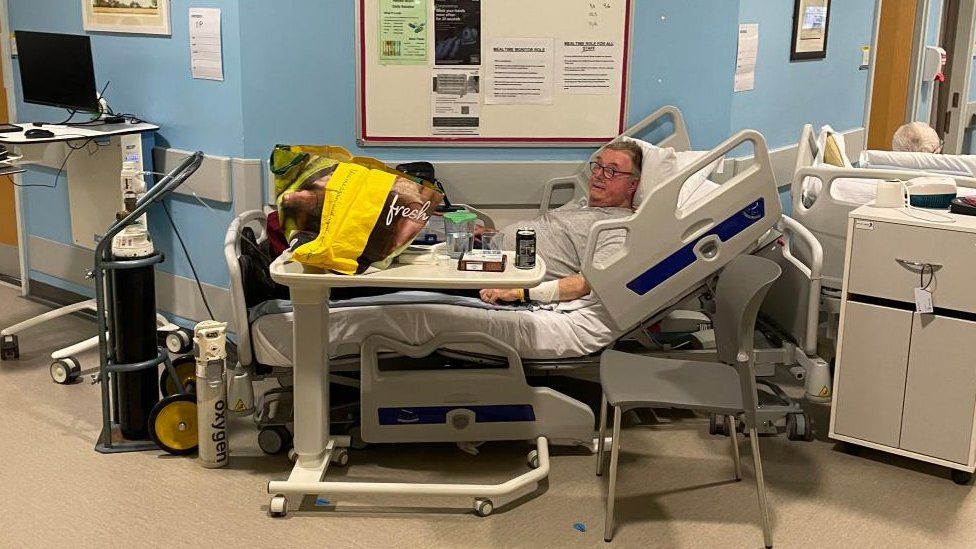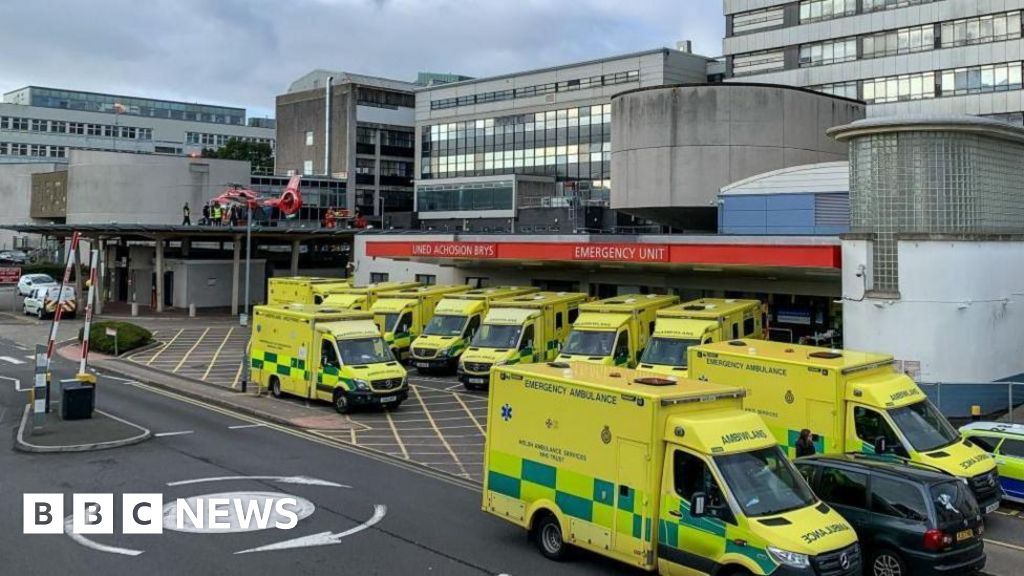 Image source, Ivan Philpotts
Image source, Ivan Philpotts
Ivan Philpotts, 77, said he was not properly cared for while in a corridor at the Norfolk and Norwich University Hospital
By Andrew Turner
BBC News, Norfolk
A patient says he felt ignored and that NHS care was lacking after he spent 14 hours on a bed in a hospital corridor.
Ivan Philpotts, 77, from Norwich, was transferred between wards at the Norfolk & Norwich University Hospital (NNUH), having contracted pneumonia.
He said he was left in a bed in a corridor with no access to water, was unable to eat and that his wife was unable to visit.
The hospital said it had experienced a high number of patients last week.
"I felt very vulnerable," Mr Philpotts said.
"Nobody seemed to be taking any notice of you and you were sitting there, people walking by you.
"I was there from 8.30 in the morning until 9.10 at night before I actually got into a bay. We got no communication whatsoever."
He said for much of the day he had nowhere to put water and found it difficult to eat his lunch because there was no table by his bed.
'Not OK to normalise'
His wife Averil, 77, said she was unable to visit.
"I thought there was no point in me going up if there was no chair for me to sit in a corridor because I'm disabled as well," she said.
"I was keeping in touch. He's started off on FaceTime, but then he couldn't use FaceTime any more because he was running out of charge on his phone and there was nowhere to charge their phone.
In November, the hospital trust introduced a "corridor care" model that was first piloted in Bristol.
The Royal College of Nursing's eastern regional director Teresa Budrey said: "We're starting to normalise it and that's not OK.
"There are patients who are suffering for hours, without proper privacy or equipment and you've also got nurses dealing with an expanded number of patients.
"We need government minsters and employers to come together for some bigger solutions across the system."
Image source, Andrew Turner/BBC
Image caption,Averil Philpotts said she was unable to visit her husband Ivan while he was cared for in a hospital corridor
Dr Bernard Brett, the hospital's interim medical director, said: "We are very sorry to hear of Mr Philpotts' experience and we would be happy to speak with him further to answer any questions.
"The NHS across Norfolk and Waveney is extremely busy, and the NNUH is experiencing record numbers of emergency department attendances and acute admissions.
"Placing extra beds on our in-patient wards and assessment units is something we only do in extreme circumstances to reduce pressure on the ambulance service and emergency department."
He added that work done to improve the management of patients had increased the number of daily discharges, but "we have further to do to ensure we are able to manage the high admission numbers".
The average time ambulances wait outside the NNUH before patients are admitted has been reduced by two hours since the new corridor care model was introduced, the hospital's chief executive said at a board meeting last month.
Speaking in that meeting, Sarah Jane Marsh, NHS England director, said: "We have moved risk from people's houses and from the back of ambulances.
"In some cases we have moved that into emergency departments and into wards that have to take the pressure of taking additional patients."
Follow East of England news on Facebook, Instagram and X. Got a story? Email eastofenglandnews@bbc.co.uk or WhatsApp 0800 169 1830
 (1).png)
 9 months ago
28
9 months ago
28













